Ever wish you could just flip a switch and focus better, remember more, or feel a little sharper? You’re not alone. Across America, from coffee shops to boardrooms, people are talking about “nootropics.” Maybe you’ve seen the word on supplement bottles, or maybe a friend swears their daily stack is the secret to crushing work and life. But what exactly are nootropics, and why is everyone suddenly obsessed with them?
Nootropics are all about boosting your brain in ways that feel natural, sustainable, and safe. Think of them as tools for getting the most out of your mind—like putting high-octane fuel in your car before a long road trip. And no, this isn’t just hype. The rise of smart supplements is being driven by real science, real-world stories, and a whole lot of curiosity about what our brains can really do.

Why Is Everyone Talking About Nootropics?
Let’s be real: the modern world is demanding. We’re juggling a million things at once—work, school, family, social life—and we’re expected to be “on” all the time. That’s where nootropics come in. They promise sharper focus, better memory, improved mood, and more energy—all without the crash of traditional stimulants.
It’s no wonder you hear about them everywhere: from Silicon Valley coders trying to code all night, to college students cramming for finals, to busy parents who just want to get through the day without feeling foggy. If there’s a chance to boost brainpower and keep up with life’s demands, people are listening.
The Rise of Smart Supplements in America
If you think supplements are just for gym rats or health nuts, think again. Brain-boosting supplements are a multi-billion-dollar industry in the U.S. Nootropics have gone mainstream, showing up in coffee blends, energy bars, even bottled waters. Celebrities, athletes, and even big-name CEOs have talked about using them.
But it’s not just hype—people want real results. And with new research coming out all the time, nootropics are starting to look less like a fad and more like the next evolution in self-care.
Defining Nootropics: What Does the Term Mean?
So, let’s get back to basics. “Nootropic” isn’t just a cool-sounding word—it actually has a specific meaning in science.
Where Did “Nootropic” Come From?
The term “nootropic” was coined back in the 1970s by a Romanian psychologist named Dr. Corneliu Giurgea. He combined two Greek words: “nous” (meaning mind) and “tropein” (meaning to bend or turn). In other words, nootropics are substances that “turn the mind” or enhance mental abilities.
Dr. Giurgea set some ground rules: a real nootropic should boost learning and memory, help the brain function under stress, protect brain cells, and be basically free of significant side effects or toxicity. So, it’s not just about stimulation—it’s about long-term brain support.
What Makes a Compound a True Nootropic?
Here’s the expert take: not every “brain pill” is a nootropic. To qualify, a compound should do at least some of the following:
-
Enhance memory and learning
-
Improve focus and attention
-
Support brain health over the long haul
-
Be safe, non-toxic, and non-addictive
That means some energy drinks, despite the buzz, aren’t technically nootropics. The best ones combine immediate effects with real, lasting support for your brain.
How Do Nootropics Work?
Alright, time for the science—but don’t worry, we’ll keep it simple and real.
The Science Behind Brain Enhancement
Nootropics work by tweaking the chemicals in your brain—called neurotransmitters—like dopamine, acetylcholine, serotonin, and GABA. These are the “messengers” that control everything from focus and mood to motivation and memory. Some nootropics boost blood flow to the brain, others provide key nutrients, and some help your brain handle stress better.
Imagine your brain as a supercomputer. Nootropics can:
-
Speed up processing power
-
Sharpen your memory “hard drive”
-
Protect your circuits from burnout
Different Types of Nootropics Explained
-
Cognitive Enhancers: Directly improve learning, focus, and memory.
-
Adaptogens: Help the brain and body manage stress and fatigue.
-
Neuroprotectors: Defend brain cells against aging, toxins, or stress.
-
Mood Boosters: Support emotional well-being and motivation.
Many nootropics fit into more than one category, which is why “stacks” (combinations of ingredients) are so popular.
Natural vs. Synthetic Nootropics
Not all nootropics come from a lab—some of the best are found in nature, while others are made by scientists for a specific purpose.
Examples of Natural Nootropics
-
Caffeine: Yep, your morning coffee counts! In small doses, it boosts alertness and focus.
-
L-Theanine: Found in green tea, helps with relaxation and attention.
-
Bacopa Monnieri: An ancient herb known for memory and stress reduction.
-
Ginkgo Biloba: Believed to improve blood flow and memory.
-
Rhodiola Rosea: Supports mood and mental stamina under stress.
Common Synthetic Nootropics and Their Roles
-
Piracetam: One of the original nootropics, often studied for learning and memory.
-
Modafinil: A prescription medication for sleep disorders, popular off-label for wakefulness.
-
Noopept: A lab-created compound said to support memory and focus.
-
Racetams (Aniracetam, Oxiracetam): Designed to boost cognition and mental clarity.
Some synthetic nootropics require a prescription, while others are available as supplements—always check the legality and safety in your region.
What Are the Most Popular Nootropics Right Now?
The market is booming, but a few standouts get all the attention—because, frankly, people say they work.
Top Herbal and Plant-Based Nootropics
-
Lion’s Mane Mushroom: Supports nerve growth and overall brain health.
-
Ashwagandha: Known for stress relief and calming the mind.
-
Panax Ginseng: Energy, endurance, and cognitive function.
-
Gotu Kola: Traditionally used for memory and concentration.
Leading Prescription and Synthetic Nootropics
-
Adderall & Ritalin: Used for ADHD; not over-the-counter and carry risks.
-
Modafinil: Boosts alertness and cognitive endurance—used for sleep disorders but popular among high-achievers.
Again, always be cautious and consult a healthcare professional before considering prescription options.

Benefits of Nootropics: What Can They Really Do?
If you’ve spent any time online, you’ve seen wild claims about nootropics: “Unleash your genius!” “Supercharge your brain!” Let’s dial it back to reality. Yes, nootropics can make a real difference, but it’s about steady, real-world improvement—not instant superpowers.
Focus and Concentration
One of the biggest draws of nootropics is the promise of better focus. Whether you’re zoning in on a project at work, studying for finals, or just trying to get through your day without feeling scattered, many nootropics are designed to help you stay on task.
Ingredients like caffeine (especially when paired with L-Theanine) give you a clean, focused energy. Bacopa Monnieri and Rhodiola Rosea help reduce distractions and mental fatigue, making it easier to finish what you start. Users often describe it as “flow”—that state where work feels effortless, and you lose track of time.
Memory and Learning
Memory isn’t just for students—everyone wants to remember names, directions, or that genius idea that pops up in the shower. Certain nootropics are legendary for their memory-boosting potential.
-
Alpha-GPC and Huperzine A: Support the neurotransmitter acetylcholine, crucial for memory and learning.
-
Lion’s Mane and Bacopa: Help with recall and long-term memory formation.
The best nootropics don’t just give you short-term recall—they may help with “neuroplasticity,” which means your brain can make new connections faster. This is what lifelong learners, creatives, and entrepreneurs are after.
Mood, Stress, and Motivation
Life’s tough. Nootropics can lend a hand here too. Adaptogens like ashwagandha, rhodiola, and ginseng are famous for reducing stress and supporting a stable, positive mood.
Amino acids like L-Tyrosine and L-Theanine may boost your resilience on rough days—helping you keep your cool and motivation when the pressure’s on.
Some users even report that their favorite stack makes them more sociable, optimistic, or proactive. It’s not about changing who you are—it’s about feeling more like your best self, no matter what the world throws at you.
Are Nootropics Safe?
You can’t talk about brain supplements without talking about safety. The good news? Most over-the-counter nootropics, especially those based on natural herbs and amino acids, are safe for healthy adults when used as directed. But let’s get into the details.
Side Effects and Risks
Just because something is natural doesn’t mean it’s side-effect free. Here’s what you need to know:
-
Caffeine: Can cause jitters, anxiety, or sleep problems if overused.
-
Bacopa Monnieri: Sometimes causes digestive issues for first-time users.
-
Ginkgo Biloba: Rarely, can thin blood—so not great with certain meds.
-
Synthetic nootropics: May have more serious risks if misused or combined with other substances.
The bottom line? Start low, go slow, and always read the label. If you have any medical conditions or take other meds, talk to your doctor first.
How to Use Responsibly
-
Stick to recommended doses. More isn’t always better.
-
Avoid “stacking” too many supplements at once unless you know exactly how they interact.
-
Take breaks. Don’t rely on nootropics every single day; give your body and brain time to reset.
-
Listen to your body. If you notice side effects—stop, reassess, and consult a pro if needed.
Smart supplementation is all about balance.
Who Uses Nootropics?
Nootropics aren’t just for biohackers or Silicon Valley CEOs. These days, people from all walks of life are curious about cognitive enhancement.
Students and Professionals
The most obvious users? Students cramming for exams, and professionals grinding out big projects or prepping for presentations. For them, nootropics are like mental insurance—helping them stay sharp and competitive.
Athletes and Entrepreneurs
You might not expect it, but top athletes use nootropics for reaction time, focus, and handling stress on game day. Entrepreneurs and business leaders want that creative edge for problem-solving and long hours.
Everyday People
Parents, retirees, artists—pretty much anyone who wants to think clearer, manage stress, or keep their brain healthy as they age. The appeal is universal: who doesn’t want a little extra brainpower?
Nootropics vs. Traditional Stimulants
So why not just drink more coffee or chug an energy drink? Here’s the difference.
How Are They Different from Coffee or Energy Drinks?
Traditional stimulants—think coffee, soda, or sugary energy drinks—work by blocking the neurotransmitter adenosine, making you feel more awake. But the effect can be harsh: jitters, crashes, and sometimes a racing heart.
Nootropics, on the other hand, are designed to be gentler and more holistic. Many work in synergy with your natural brain chemistry, aiming to deliver steady, sustained focus, without the sharp peaks and valleys.
Why Choose Nootropics Over Regular Stimulants?
-
Less crash: The energy feels smoother, lasts longer, and tapers off gently.
-
More than just energy: Many nootropics support mood, memory, and stress response—not just alertness.
-
Brain health benefits: Some nootropics actually protect brain cells over time, rather than just hyping you up in the moment.
It’s about optimizing, not overstimulating.
How to Choose the Right Nootropic for You
With so many options, picking the right supplement can feel overwhelming. Here’s how to narrow it down.
Key Factors to Consider
-
Your goal: Are you looking for focus, memory, mood support, or all of the above?
-
Caffeine tolerance: Do you want stimulation or a caffeine-free formula?
-
Single ingredient or stack: Some people start simple (like L-Theanine + caffeine), others prefer multi-ingredient blends.
-
Your health profile: Allergies, sensitivities, medications—always check before trying anything new.
Reading Labels and Brand Transparency
Stick with brands that clearly list every ingredient and dosage. Avoid “proprietary blends” that hide what’s inside.
Check for third-party testing, customer reviews, and company reputation. The best companies want you to be informed, not just sold.
The Future of Nootropics: Trends and Innovations
The world of brain supplements is changing fast, and the future is looking bright (and sharp).
Personalized Brain Health
Imagine a supplement tailored to your exact brain chemistry, stress levels, and daily needs. Companies are working on it—using DNA, lifestyle data, and even brain scans to fine-tune your nootropic regimen.
New Discoveries on the Horizon
Research on the gut-brain axis, adaptogens, and neuroplasticity is opening doors to new, more effective ingredients. Expect cleaner formulas, smarter blends, and (hopefully) even better results in the next few years.
Conclusion: Smart Choices for a Sharper Mind
Nootropics are here to stay. Whether you’re hustling in a high-pressure job, studying late into the night, or just looking to stay sharp as you age, these brain boosters offer a modern way to support your cognitive edge.
They’re not a cure-all, but they can be a powerful tool in your self-care kit—especially when combined with good sleep, nutrition, and a balanced lifestyle.
Always use responsibly, choose transparency, and listen to your body. With a smart approach, nootropics can help you feel more focused, motivated, and ready to take on whatever life throws your way.
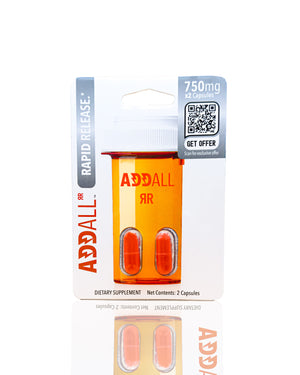
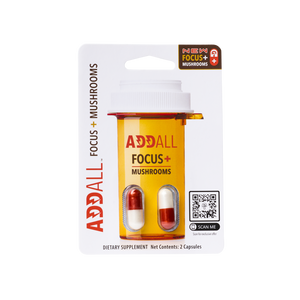

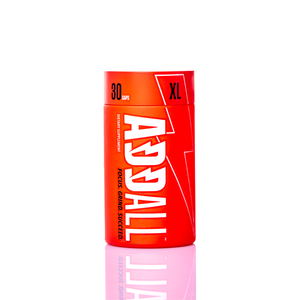
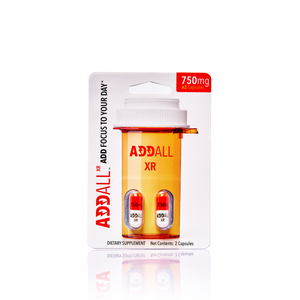
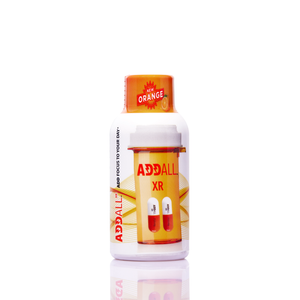
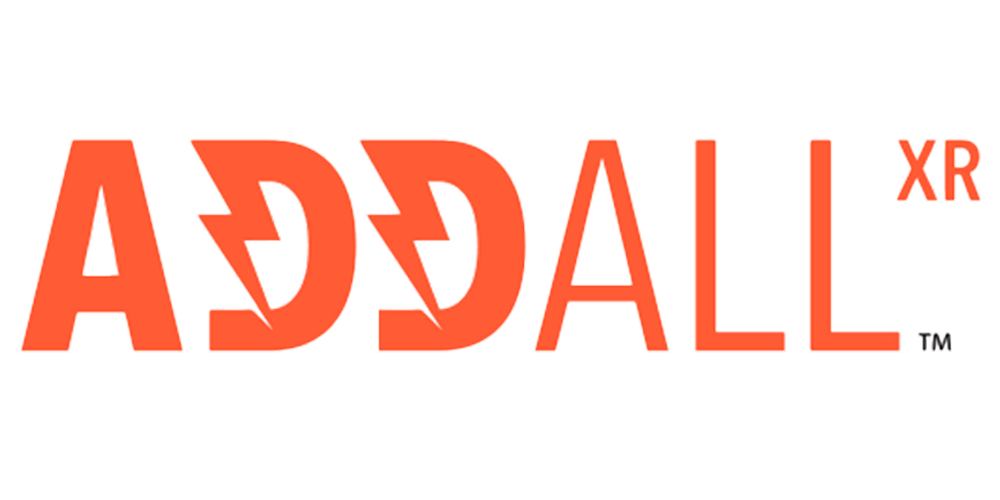
 Addall XR
Addall XR
 Addall XL
Addall XL
 Addall
Addall Addall
Addall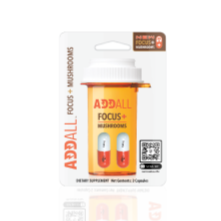 Addall
Addall Addall
Addall
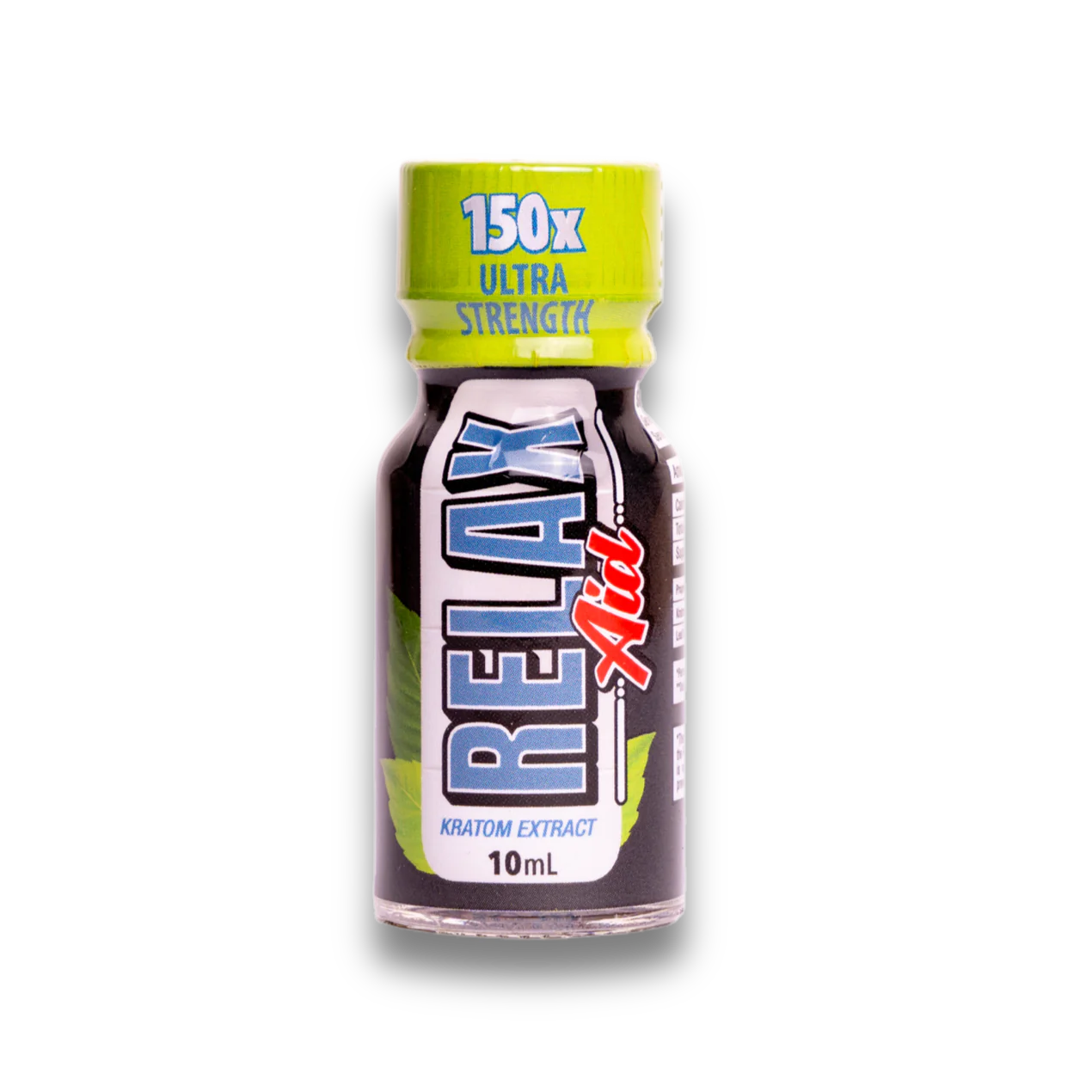 RelaxAid
RelaxAid
 Compare
Compare




















































